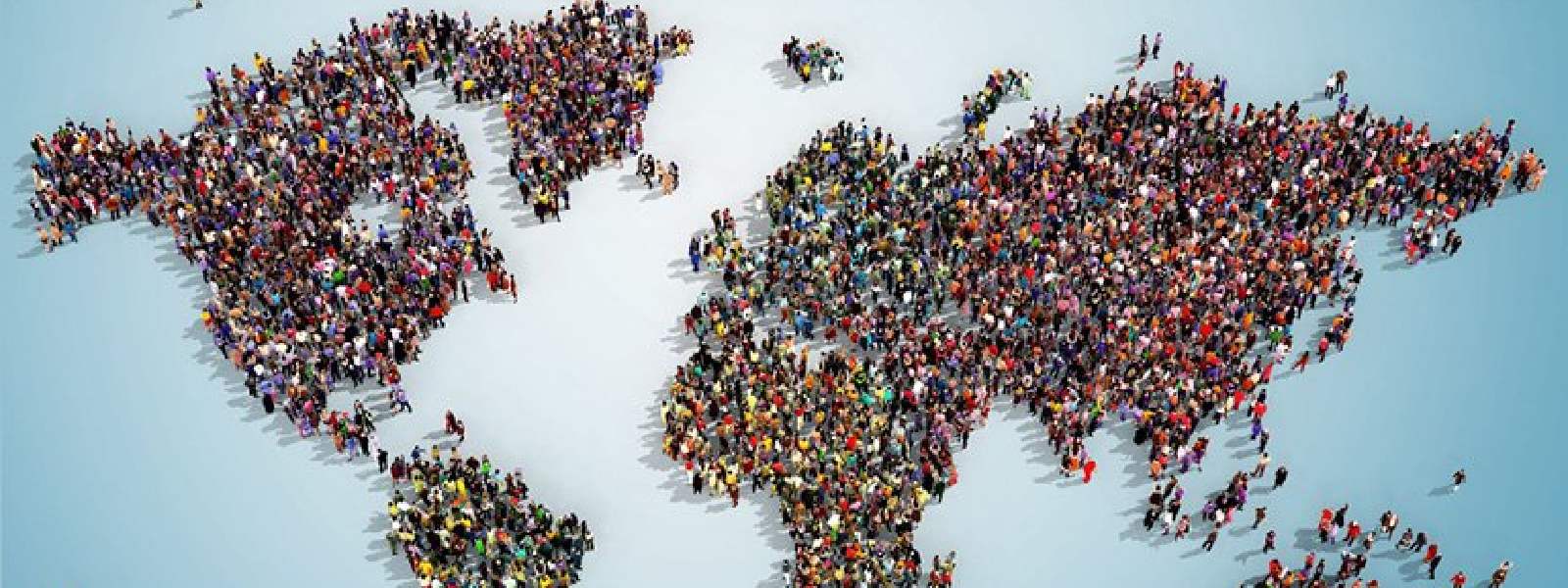.webp)

World Population hits 8 BILLION & counting
COLOMBO (News 1st) - Earth now has 8 billion people—and counting.
The global population is projected to reach 8 billion on 15th November 2022, and India is projected to surpass China as the world’s most populous country in 2023, according to World Population Prospects 2022.
From the emergence of Homo sapiens, it took roughly 300,000 years before one billion of us populated the Earth. That was around 1804, the year morphine was discovered, when Haiti declared independence from France, and when Beethoven first performed his Third Symphony in Vienna.
We’ve added our most recent one billion more just since the first term of U.S. President Barack Obama. A mere dozen years after reaching seven billion, the planet most surpassed eight billion people on 15th November.
The UN declared November 15th as the “Day of Eight Billion” because there is no mistaking the importance of this moment.
The global population is growing at its slowest rate since 1950, having fallen under 1 per cent in 2020.
The latest projections by the United Nations suggest that the world’s population could grow to around 8.5 billion in 2030 and 9.7 billion in 2050.
It is projected to reach a peak of around 10.4 billion people during the 2080s and to remain at that level until 2100.
World Population Prospects 2022 also states that fertility has fallen markedly in recent decades for many countries.
Today, two-thirds of the global population lives in a country or area where lifetime fertility is below 2.1 births per woman, roughly the level required for zero growth in the long run for a population with low mortality.
The populations of 61 countries or areas are projected to decrease by 1 per cent or more between 2022 and 2050, owing to sustained low levels of fertility and, in some cases, elevated rates of emigration.
More than half of the projected increase in the global population up to 2050 will be concentrated in eight countries: the Democratic Republic of the Congo, Egypt, Ethiopia, India, Nigeria, Pakistan, the Philippines and the United Republic of Tanzania. Countries of sub-Saharan Africa are expected to contribute more than half of the increase anticipated through 2050.
The share of global population at ages 65 and above is projected to rise from 10 per cent in 2022 to 16 per cent in 2050. At that point, it is expected that the number of persons aged 65 years or over worldwide will be more than twice the number of children under age 5 and about the same as the number under age 12. Countries with ageing populations should take steps to adapt public programmes to the growing numbers of older persons, including by establishing universal health care and long-term care systems and by improving the sustainability of social security and pension systems.
Other Articles
Featured News





.png )





-755421-755635_550x300.jpg)



-755617_550x300.jpg)
-755574_550x300.jpg)
.gif)








.webp)






